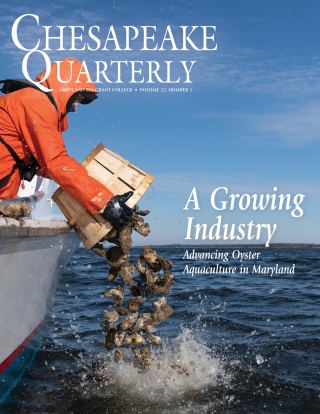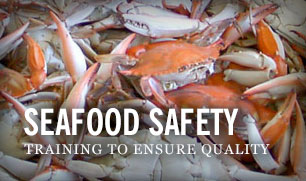Knauss legislative fellowships in Congress help build careers — and they're fun and educational. See our video and fact sheet for details.
New Fellowships Support Research in Coastal Resilience and Sustainability
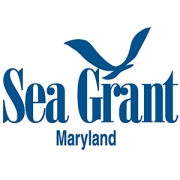
Maryland Sea Grant has created a new type of graduate fellowship for students to conduct research about coastal resilience and environmental sustainability. The fellows in this program will work to develop scientific findings that can be used to manage environmental challenges and effects of climate change facing Maryland’s coastal ecosystems and communities.
“We created this fellowship because these issues (coastal resilience and sustainability) have become really important to the state of Maryland and its coastal communities as we’re considering changing climate,” said Michael Allen, associate director for research and administration.
Unlike many fellowships that assign graduate students to work on research projects led by faculty members, the Coastal Resilience and Sustainability Fellowships were created to allow graduate students to independently plan, budget, and conduct their own research projects.
The three inaugural students in this Sea Grant fellowship – Ph.D. students Hillary Lane Glandon, Emily Russ, and Rhea Thompson – will study coastal resilience and sustainability in the particular contexts of blue crabs, sedimentation, and green infrastructure.
Glandon is studying how climate change has affected blue crabs in the Chesapeake. The growing concentration of carbon dioxide in the atmosphere, a result of climate change, is causing the Bay’s water to become more acidic. This could have serious implications for how blue crabs grow and build their shells. Glandon is studying these implications at the Chesapeake Biological Laboratory of the University of Maryland Center for Environmental Science (UMCES). Her past research included studying the fertility of oysters, another significant and environmentally relevant species in the Chesapeake Bay.
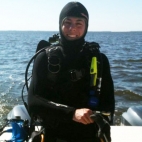 |
| Hilary Lane Glandon |
Glandon earned her master’s degree in marine biology from the University of North Carolina at Wilmington, where she was president of the Biology Graduate Student Association. Glandon is currently in her second year of a Ph.D. in the University of Maryland Marine Estuarine Environmental Science (MEES) Program.
Russ is conducting research at UMCES’ Horn Point Laboratory focused on sediment dynamics in the upper Chesapeake Bay. The Conowingo Dam on the Susquehanna River is quickly approaching its capacity to store sediment flowing down river. Currently the dam stores some of that sediment, and the remainder flows over the dam and into the Bay. As the storage capacity is reached, more sediment will be carried past the dam and into the upper Chesapeake, a threat to the Bay’s water quality.
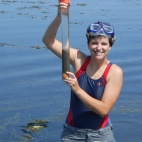 |
| Emily Russ |
Russ is studying the transport, deposition, and accumulation of this sediment, information that will be used to better predict and manage the movement of sediment in the future. Her past research has mainly been centered on coastal geographical changes. Russ is certified in geographical information systems (GIS) and has presented her past research to the Geological Society of America. Russ has a master of science in earth science and is pursuing a Ph.D. in the MEES Program.
Thompson, a Ph.D. student in the MEES Program at the University of Maryland, College Park, is conducting research on green infrastructure -- in particular, using natural resources or altering developed areas like roads and parking lots to help manage stormwater. Efficiently managing stormwater runoff helps to improve water quality in the Bay. This research is to be conducted on the University of Maryland’s WaterShed, a sustainable solar house developed by the university’s researchers. The WaterShed has a green roof, an example of green infrastructure that involves growing vegetation on the roof of buildings. Thompson’s research is focused on quantifying the benefits of green roofs in saving energy and reducing water use. She said she hopes that this research will help green infrastructure to become more widely used.
 |
| Rhea Thompson |
In addition to her research, Thompson has worked to encourage minority students to pursue studies in science, technology, engineering, and mathematics (STEM).
These fellows, and the new program that they are a part of, will support Maryland Sea Grant’s efforts to help create resilient and sustainable coastal communities and to restore and preserve the Chesapeake Bay ecosystem and the businesses that depend on it.
- Meg Wickless, Maryland Sea Grant Editorial Assistant
For more information about the fellowship or to learn how to apply, visit http://www.mdsg.umd.edu/coastal-resilience-and-sustainability-research-fellowships



